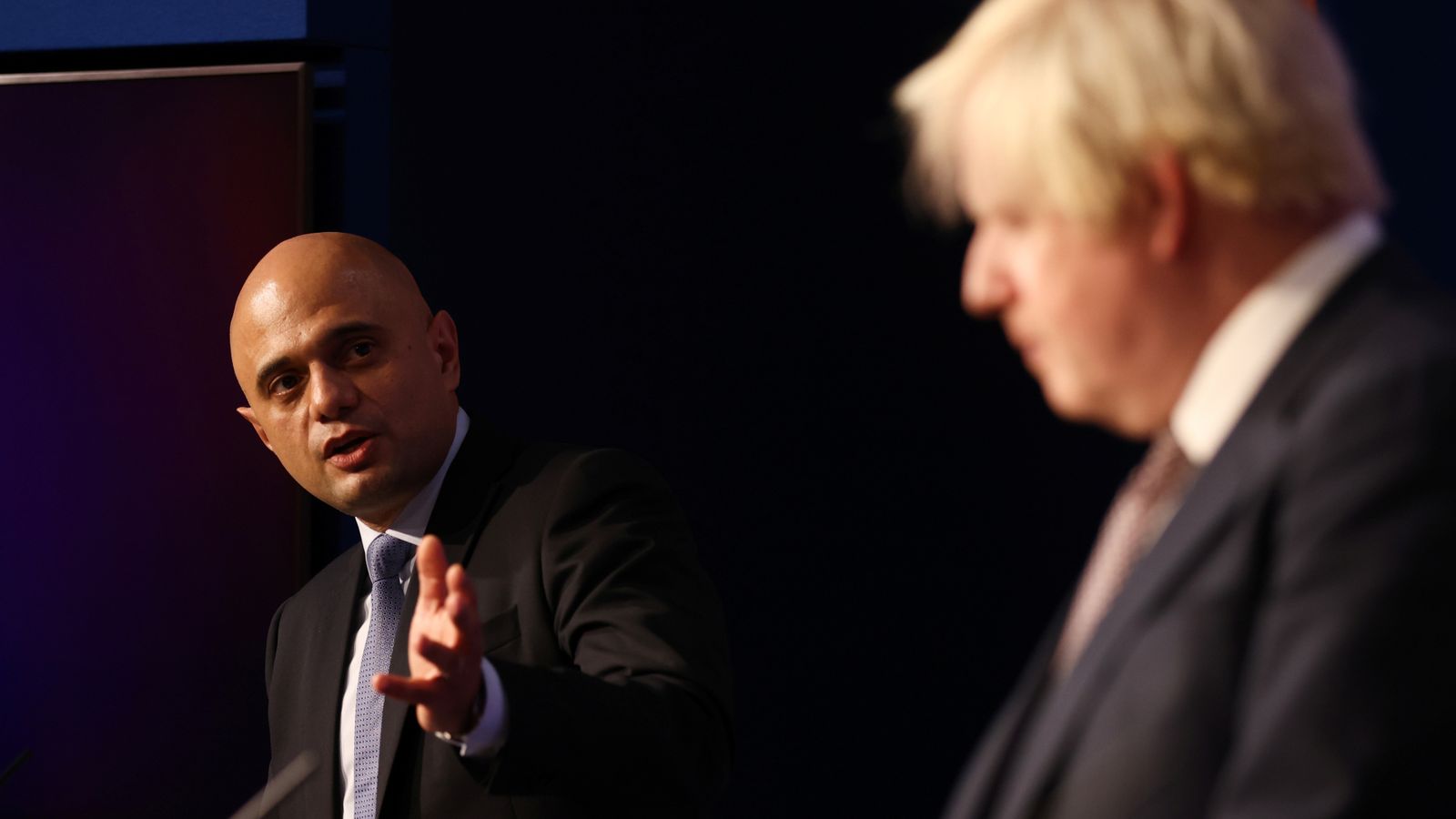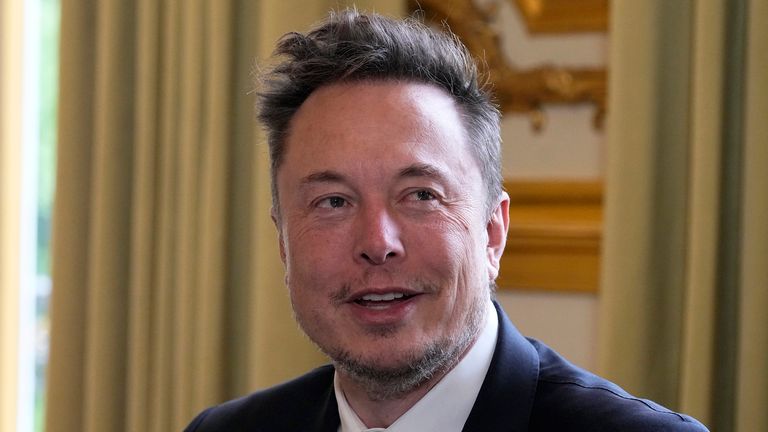
It was a year ago today that Boris Johnson’s government began to collapse, in real time, on Twitter.
Allegations against Chris Pincher, and Downing Street’s attempt to mount a defence, caused ructions in the Conservative Party and government.
The collapse began in earnest at 6.02pm on 5 July 2022, when Sajid Javid tweeted his resignation as health secretary following the Pincher scandal.
Politics latest:
Minister makes NHS waiting list admission
Fewer than ten minutes later, then-chancellor Rishi Sunak joined him, announcing on the social media site that he was leaving government over the lack of standards under Mr Johnson.
What followed was the fall of a government, in real-time, on social media.
Everyone from the trade envoy to Morocco to Mr Sunak’s new-in-the-job successor told Mr Johnson, publicly, that he had to go.
All of this was coming through tweets, unannounced, unbriefed, and unexpected.
As well as frantically phoning or messaging their political contacts, journalists everywhere were glued to their precious Tweetdeck lists, waiting for the next letter to drop.
Dr Patricia Rossini, a senior lecturer in communication, media & democracy at the University of Glasgow, told Sky News that the nature of social media likely added to the pressure on serving ministers and Mr Johnson.
She said: “The buzz generated by the media attention to Twitter last summer likely contributed to put pressure on government ministers at the time.
“This would be because not just journalists were covering resignations as they were being tweeted, but also MPs and other ministers were paying attention to it as well, and the sequencing of the announcements gave a sense of momentum/timing that is hard to replicate in other online platforms.”
A shout in the newsroom, a message to the WhatsApp group, a post in the Politics Hub, and Sky News’ ministerial resignation tracker ticked ever upwards.
Momentum built and built until finally – 60 or so resignations and a sacking of Michael Gove later – Mr Johnson finally bowed to the pressure and announced he would resign.
This all came so fast, so furiously, that there was little in the way of pre-briefing from those who would resign next – there was no press conference to explain for tomorrow’s front pages and tonight’s bulletins.
Indeed, one of the few moments that followed any historical tradition was the resignation speech of Mr Javid in the House of Commons, much like Geoffrey Howe’s broken cricket bat eulogy for the latter days of Margaret Thatcher’s administration.
Fast-forward a year, and things might have been very different.
Twitter is not the beast it once was – Elon Musk’s tenure at the top has seen such basic things change like whether accounts can be trusted to be who they say they are.
And now the limiting of how many tweets can be viewed means that instant dissemination of information, that builder of pressure, is fading from the platform.
So would 2022’s events have unfolded differently, had access to Twitter been restricted?
Dr Rossini says the platform is only as valuable as those who use it.
“Now that Twitter is increasingly losing its place, partially due to the ongoing restrictions to access and the migration of ‘power users’ to emerging platforms like Mastodon or Bluesky, there is less of a straightforward online ‘place’ where similar levels of attention and impact would be achieved today.”
So if Mr Johnson’s government were collapsing today – or teetering – maybe it would not have gone down as quickly as it did in reality.
One MP who resigned from the Johnson government tells Sky News they would have left regardless.
Tim Bale, professor of politics at Queen Mary University, London, said he did not think things would have moved as fast if Twitter access was limited – “but power would have slid away from Johnson pretty soon afterwards, whatever”.
“History shows us that it only takes the loss of two or three big beasts to confirm a prime minister’s loss of authority, after which they’re almost certainly done for – social media or no social media.”
If the political Twitter account is diminishing in power, so too could the attractiveness of the platform for MPs.
Click to subscribe to the Sky News Daily wherever you get your podcasts
Could this lead to elected politicians reverting to traditional channels, like an emailed press release, or to using potential Twitter replacements like Meta’s Threads?
As Dr Rossini notes, social media allows MPs to distance themselves from difficult questions, and while MPs will not be early adopters of a new platform – where they go journalists, and news, will follow.













